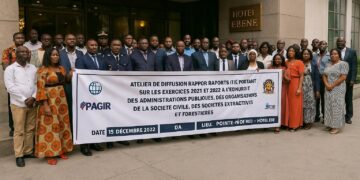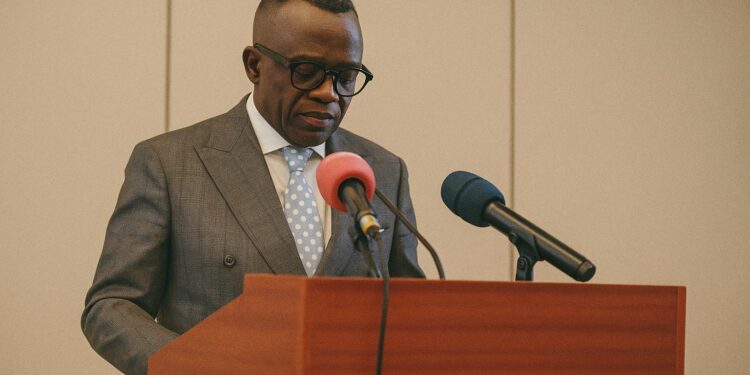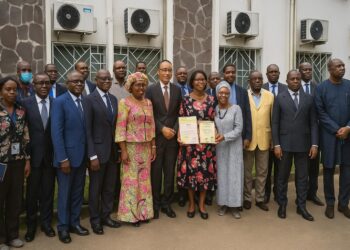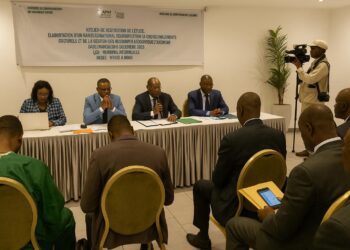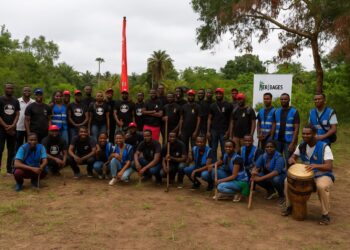Strategic Clarity Emerges from a Decade-Old Data Gap
For the first time since 2011, the Republic of Congo is embarking on a nationwide Demographic and Health Survey whose scope promises to illuminate shifts in fertility, mortality and service delivery that have unfolded during a turbulent decade for global public health. The July 2025 launch, presided over by the Minister of the Economy, the Minister of Health and a cohort of international partners, signals not merely routine statistical housekeeping but a deliberate diplomatic statement: policy choices in Brazzaville will rest on verified evidence rather than conjecture, in line with international recommendations (World Bank 2024).
A Concert of Institutions under Ministerial Stewardship
Inside the assembly hall of the Ministry of the Economy, the choreography was telling. Senior officials from the National Institute of Statistics outlined timelines, sampling frames and expected indicators alongside representatives of UN agencies and bilateral donors. Their presence underlined the government’s ownership of the process while reflecting a pragmatic openness to technical scrutiny. As the Director-General of the institute insisted, the enumeration tools have already undergone exhaustive piloting, with geo-referenced household mapping completed to avert the under-coverage that constrained earlier surveys (INS 2025).
CRS Financial Backbone and the Subtle Diplomacy of Aid
Catholic Relief Services, channeling nearly half of the project’s budget through a Global Fund allocation, occupies a pivotal yet discreet role that epitomises the modern partnership model. By underwriting logistical costs—vehicles, tablets, field allowances—the faith-based agency converts philanthropic capital into public goods while allowing the state to remain front-stage. Diplomatic sources observe that this arrangement preserves national sovereignty, avoids conditionality debates and ultimately strengthens Brazzaville’s bargaining position in wider development financing negotiations (Global Fund 2025).
Methodological Vigilance Guards Statistical Integrity
In technical briefings, statisticians emphasise a multilayer quality-control lattice: enumerator training spanning gender-sensitive interviewing, real-time data validation through encrypted servers and third-party supervision by academic demographers from regional centres of excellence. Such safeguards are indispensable in an era when fabricated numbers can compromise donor confidence and misdirect scarce resources. The survey’s digital backbone also reduces the temporal lag between fieldwork and policy uptake, a recurrent concern voiced after the 2011-2012 edition (AfroStat 2023).
Anticipated Impact on Health Governance and Accountability
Once disaggregated results begin to flow in 2026, ministries anticipate recalibrating immunisation outreach, maternal health subsidies and malaria-control commodity pipelines. Legislators will receive constituency-level dashboards, while civil-society actors gain a benchmark for monitoring service equity. The World Bank argues that such transparent feedback loops foster a virtuous cycle: better data attracts concessional lending, which in turn funds reforms that generate still better metrics—a pattern already observed in neighbouring economies (World Bank 2024).
Looking Beyond Enumeration to Sustainable Development Paths
Ultimately, DHS III is less a statistical exercise than a governance milestone. By convening clerics, technocrats and financiers under a single rubric of evidence, Brazzaville projects a narrative of disciplined modernisation consistent with the African Union’s Agenda 2063. It also sends an understated reminder that the Republic retains agency in shaping its developmental trajectory, even as it welcomes external support. In a region where data vacuums often breed policy paralysis, the decision to count—carefully, publicly and collaboratively—may prove the most consequential reform of all.





